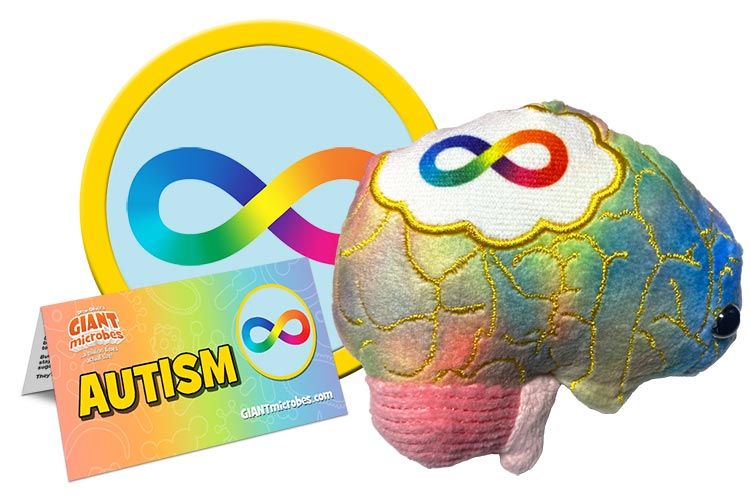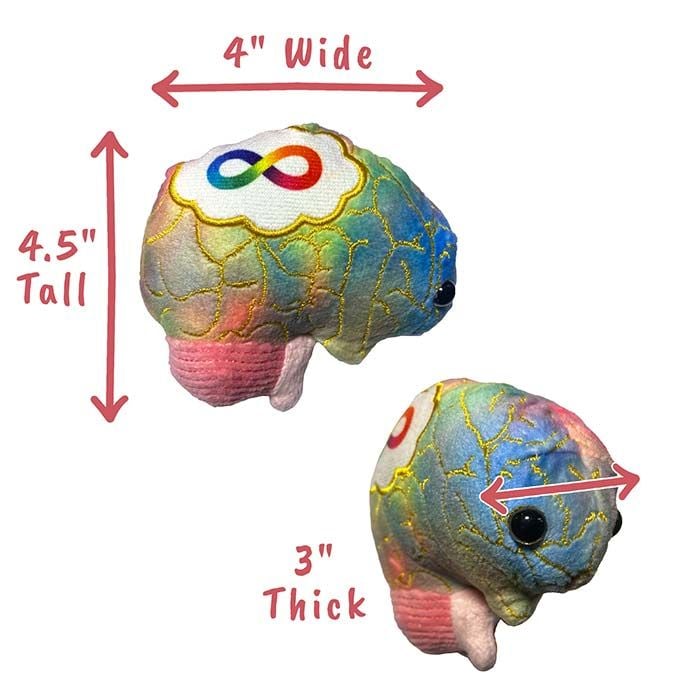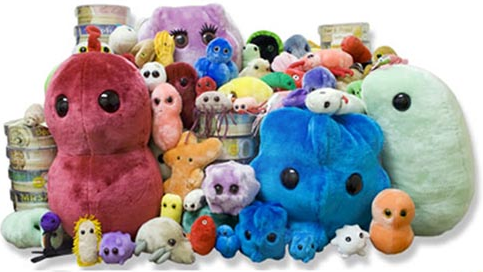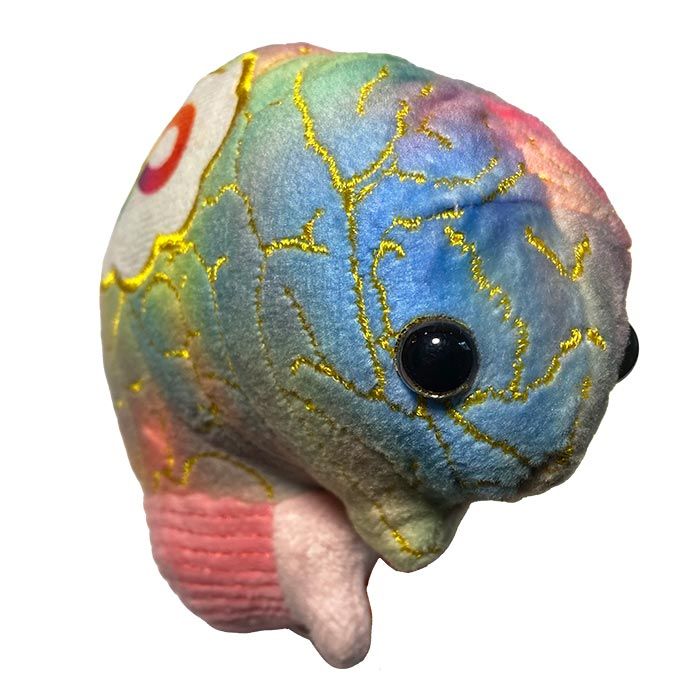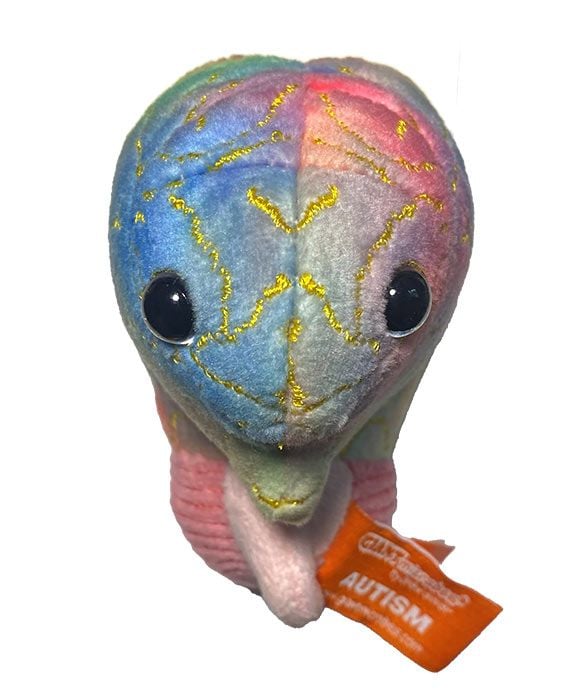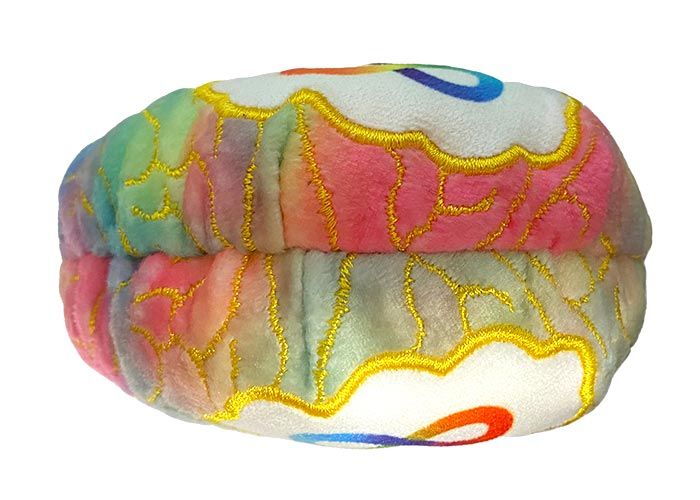Autism
GIANTmicrobes plush representation of Autism helps educate, spread awareness, and encourage discussions about vitally important topics in health and neurodiversity.
This soft, cuddly product makes a memorable emotional support and educational gift for friends and loved ones. Features a brain with double-sided rainbow infinity sign inside a gold-lined thought cloud and embroidered details of the cerebrum and cerebellum. Includes a printed card with educational information.
For families, students, advocates, therapists, social workers, psychologists and other healthcare workers - this is a unique, memorable and useful tool to help educate and get more people talking about neurodiversity.
Size: 4.5 x 4 x 3"
Product Details
Additional Information
| Sizes | Giantmicrobes are based on actual microbes, cells, organisms and other critters, only 1,000,000 times actual size! Gigantic (GG) 16-24" XL (XL) 10-15" Original (PD) 5-8" Keychain (KC) 2-4" with clip |
|---|---|
| Materials | Plush from all new materials. Stuffed with polyester fiber fill. Surface washable: sponge with water & soap, air dry. |
| Packaging | Each plush microbe includes a printed card with fun, educational and fascinating facts about the actual microbe or cell. |
| Safety | Every product meets or exceeds U.S. and European standards for safety. For ages 3 and up. |
All about Autism
FACTS: Autism is a diverse spectrum of neurological conditions that impacts how a person perceives information and socializes with others. No two autistic people are alike and there is a great range of traits and abilities among those who are diagnosed. Many autistic people interact differently and some have challenges transitioning from one activity to another. Others are hyper-focused on details and exhibit repetitive patterns of behavior.
Autism may be diagnosed in early childhood or later in life. There is no single cause, with both genetics and environmental factors appearing to play a role. Boys are more likely than girls to be diagnosed, and while the gender gap is closing, experts know less about how the condition manifests itself in females. Today, approximately 2% of people are diagnosed with autism. The rate of diagnosis is rising, as the conditions often went undetected in the past. Autism still remains underrecognized and underdiagnosed, so it is hard to estimate its prevalence.
The brain of each autistic person is unique with its own pattern of connectivity. The autistic community is just as diverse as the autistic brain. Every autistic person is on a different journey, forming their own opinions and speaking their own minds. We must all strive harder to create a compassionate world for autistic people. Thankfully, attitudes are changing. Many educators, clinicians, advocates and the public are embracing the concept of neurodiversity so that everybody, no matter how they experience the world, can express their full potential.


